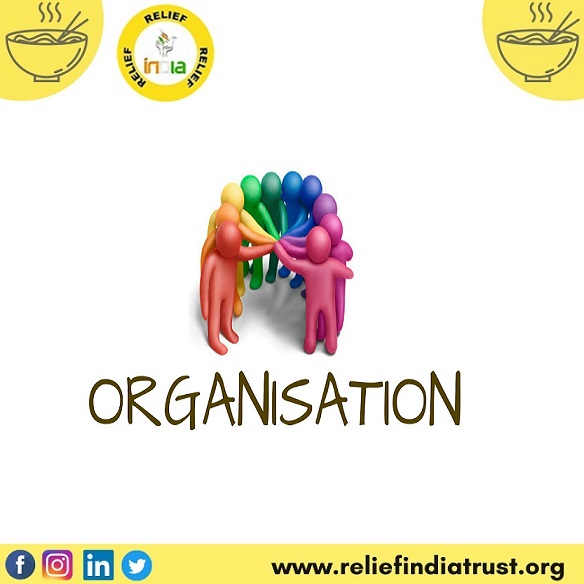Hand washing looks like a simple task, but it saves millions of lives. Sometimes a small step can make a big difference. Hand washing saves you from many problems, of which we are not aware. Hand washing is the best hygiene activity to prevent infection. Despite the fact that many people were aware of the importance of hand washing, they ignored it until COVID 19, when people made an extra effort to wash their hands. NGOs Relief India is well aware of the importance of hand washing and educates its beneficiaries on the subject.
Washing hands using water and soap has been a helpful method to prevent the spread of corona virus since the beginning of the COVID-19 virus in late 2020, with a higher focus due to its resonant effects on lowering the spreading of other infections. A good platform for maintaining and growing the benefits of better proper hand washing behaviors.
By encouraging washing hands with soap and water, it aims to reduce child deaths and boost health. The lessons from the last year have made clear the need for concerted effort to end the historical disregard for infection control resources, laws, and programs.
There are many illnesses that are extremely infectious, meaning they spread from one individual to the other. Many intestinal conditions and respiratory infections, such as the new corona virus infection, can be avoided with proper handwashing.Using hand sanitizers or washing your hands with soap and water will destroy the bacteria that might spread diseases by one person to another.
NGOs Relief India on How Germs Spread?
It is better to understand how germs spread before learning how to wash your hands properly. This will serve to emphasize how crucial hand washing is.
Germs are small living things with the ability to spread disease. Among other things, germs include bacteria, viruses, and fungi.
Sneezing, coughing, or rubbing your eyes can transport germs from your nose, mouth, or eyes to your hands and then to other family members or friends. The common cold and eye infections are among the disease that can avoid by simply washing your hands.
Hands to food: Typically, a sick food Preparer who neglected to wash his or her hands after using the bathroom spreads germs from unwashed hands to food. The people who consume the meal are exposing to the bacteria. Regularly cleaning your hands after using the bathroom and then before preparing food can easily stop this.
Children can contract an infection from an infected child by touching their hands or by changing their diapers. The germs that cause diarrhea can spread to others if the parent doesn’t quickly wash their hands.
It taught the lesson of cleanliness in the school itself. However, as we grow up we stop following these habits, which is not a good habit. Cleanliness is a habit people of all ages should adopt, even if it’s just washing hands safely. Hand wash is a good habit and it also protects you from many dangerous diseases.
How Hand Washing Started?
A doctor named Ignaz Semmelweis started hand washing. When he examined the women who were dying continuously in his hospital, he found that most of the deaths were due to a lack of cleanliness. After this, he strictly adopted this rule and also got better results.
How to Wash Hands?
Hands must be washed with soap or hand wash for at least 20 seconds. Because the chemical elements present in the soap take at least 20 seconds to kill the bacteria or virus. For this reason, we should not do this work in haste. Let’s go over how to safely wash your hands.
- First of all, remove all types of accessories worn on the hands.
- Soak hands in water and use soap or hand wash as needed.
- Then rub your hands thoroughly and scrub every corner thoroughly.
- Rub on the backside of the hands as well, and then wash with water.
- Wipe your hands with a clean towel and dry them thoroughly.
Latest Facts on Hand Wash
- 670 million individuals lack any access to basic handwashing services with soap and water at home, which accounts for one in ten persons worldwide, or 2.3 billion people. In addition, over six out of ten people lack access to basic handwashing services at home in the least developed countries.
- 818 million kids, 462 million of whom went to schools with no facilities at all, affected by the lack of basic hygienic services like water and soap in 2 out of 5 schools around the world. In seven out of ten schools in the least developed nations, there is nowhere for kids to wash their hands.
- At the points of care in which the patient, a hospital worker, and therapy involve touch with the patient, one in three healthcare center globally lack hand hygiene facilities.
- Pneumonia and Diarrhea amongst the deadliest disease is preventable through using soap 23% and 45% respectively.
What is the Importance of Hand Wash?
Numerous of infection can spread through one person to another without washing hands. Many times, it is not possible to wash hands with soap, so you can use sanitizer as an alternative. There is a misconception about sanitizer that after applying it one should wash hand. However,sanitizers are an effective way to fight against germs but they are not effective from all types of germs.Hygiene is one of the simplest, but most important, ways to reduce disease and infection spread. Hand washing come under the term hygiene. NGOs Relief India during Covid pandemic helped people by distributing necessary items for protection like sanitizer and face masks.
Click on https://www.reliefindiatrust.org/to read and know more about NGOs Relief India Trust NGO. Follow us on Facebook, Instagram, Twitter, and LinkedIn for daily updates. We update our various activities that help the poor better survive.

